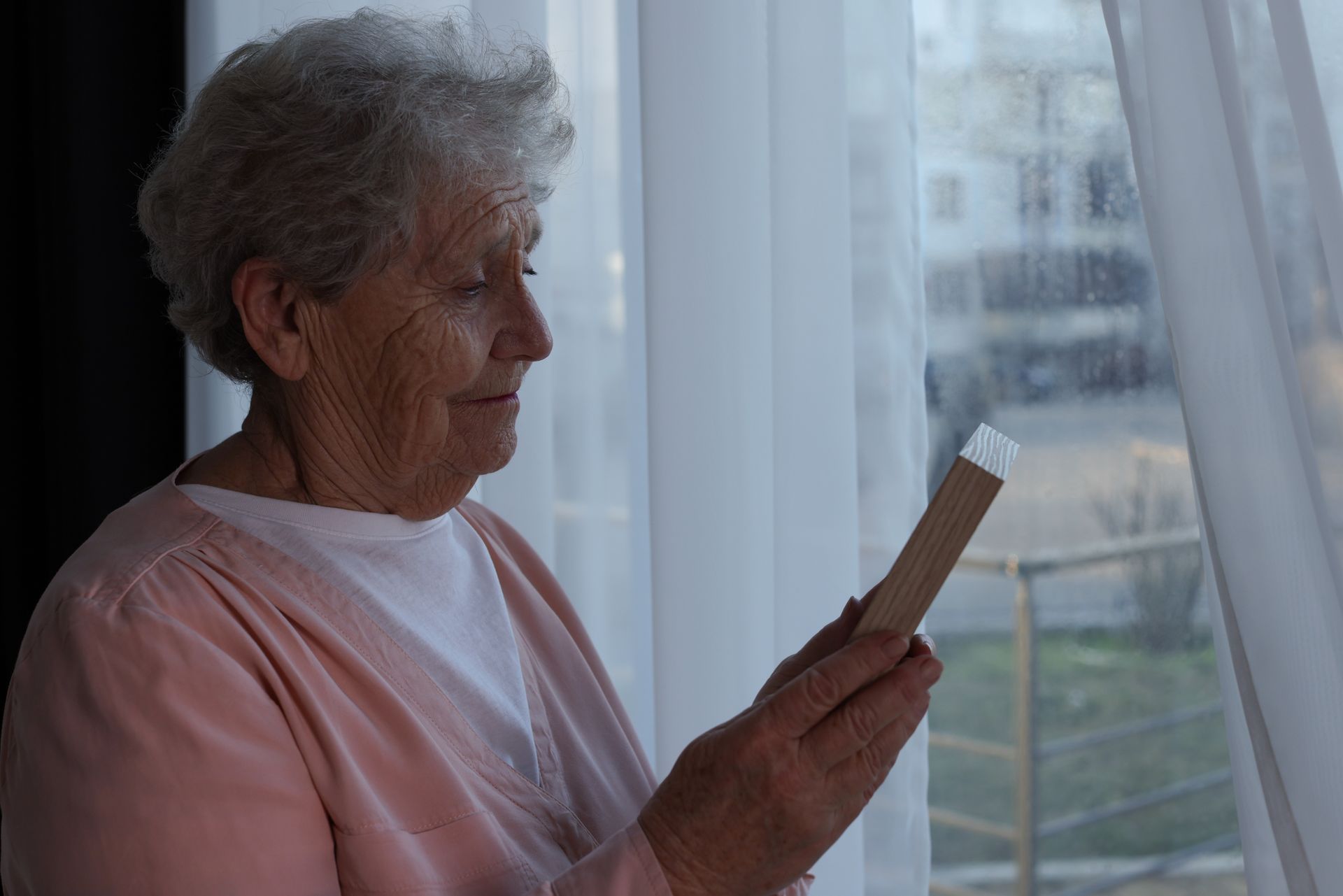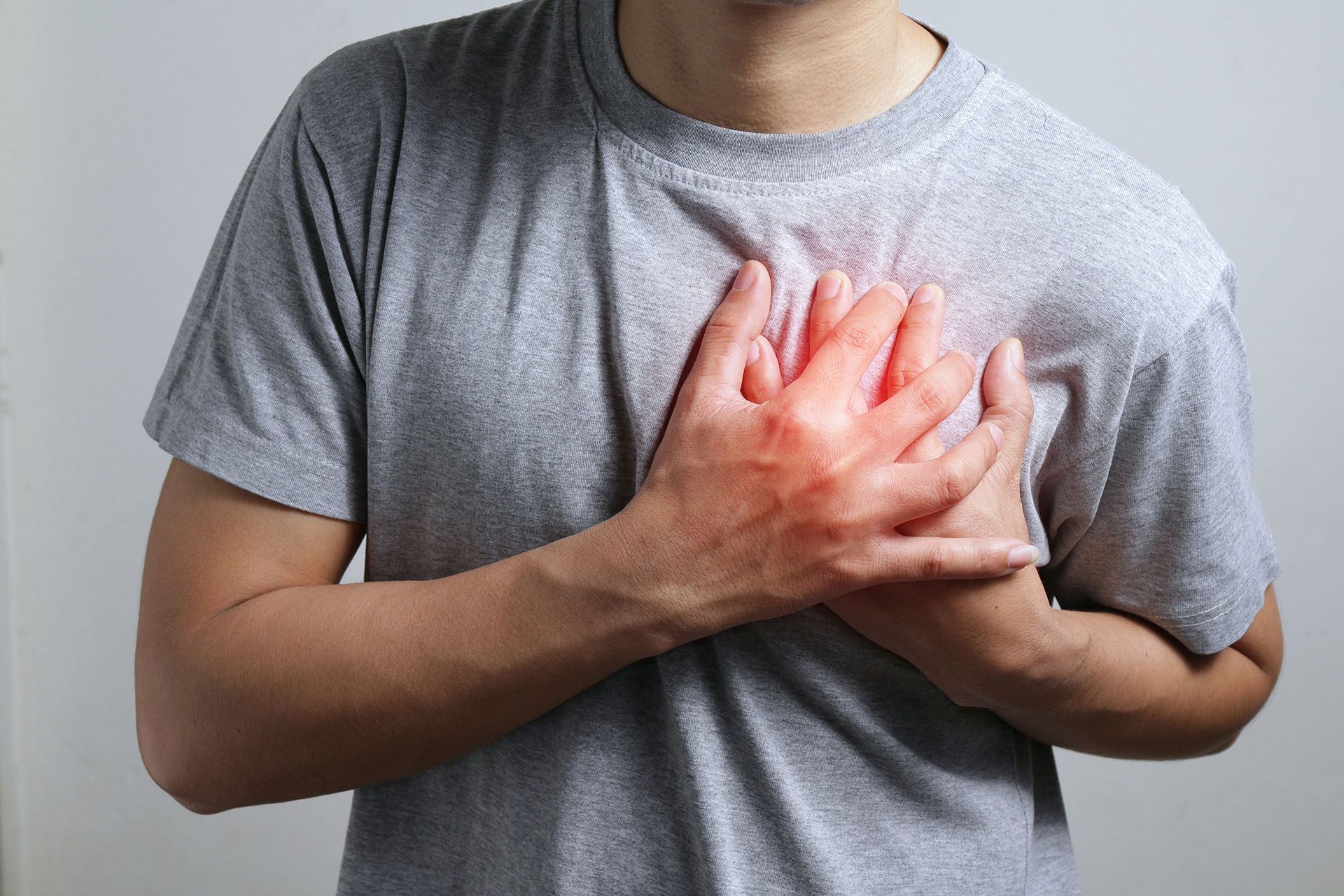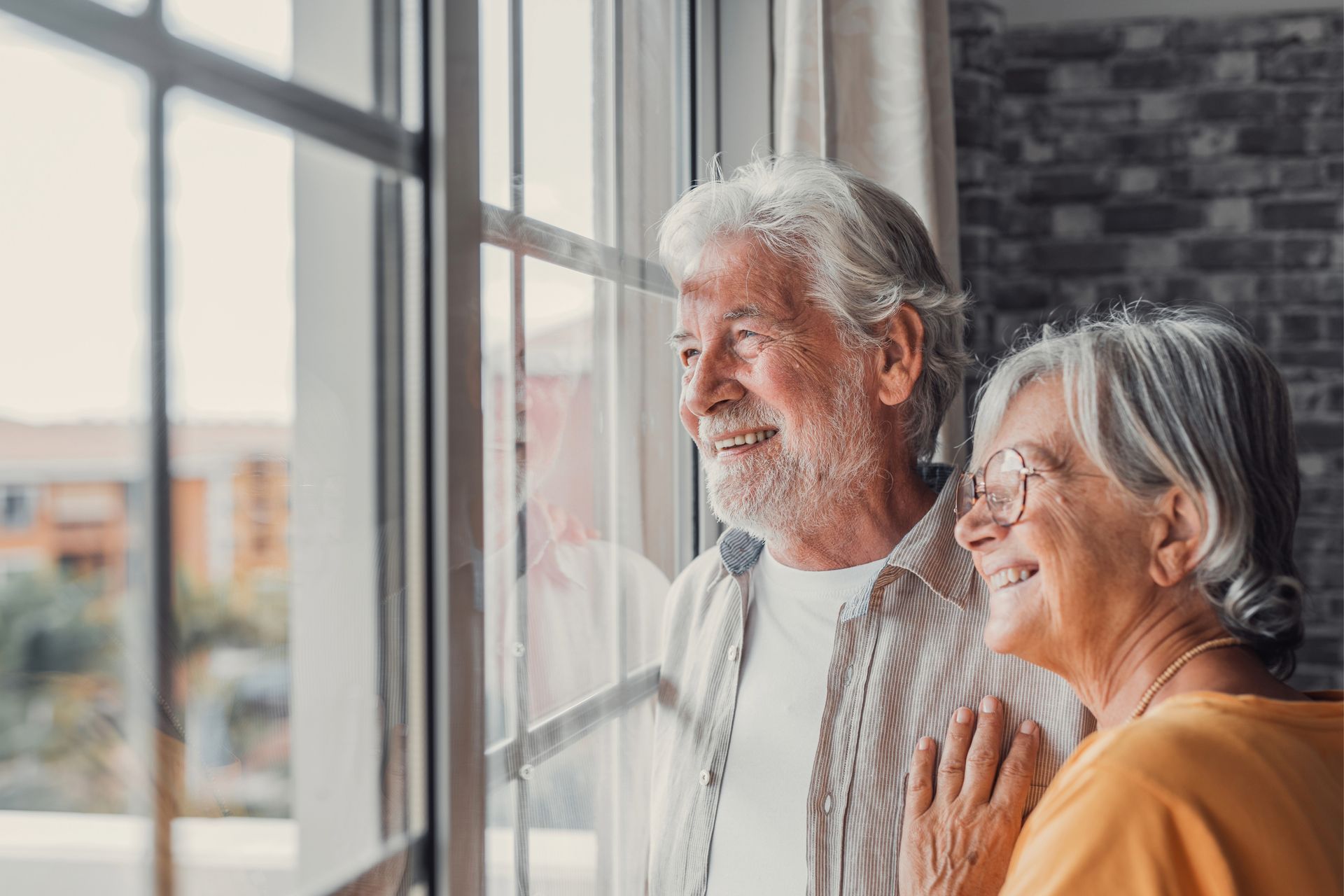INS LifeGuard
Understanding Seasonal Affective Disorder (SAD) in Seniors: Symptoms, Causes and Treatments

Have you noticed a senior loved one feeling down or unusually fatigued during the winter months?
Could this be more than just the "winter blues"?
Seasonal Affective Disorder (SAD) is a type of depression that occurs at specific times of the year, most commonly during the winter months. Often referred to as "winter depression," it can also occur in the summer, though this is less common. The condition can significantly impact a person's mood, energy levels, sleep patterns, and overall quality of life.
Approximately 1 in 300 Australians suffer from Seasonal Affective Disorder (SAD), with women being more susceptible than men. Among seniors, the prevalence may be underreported due to the overlap of symptoms with other age-related conditions.
For seniors, SAD can be particularly challenging due to various age-related factors. Understanding this condition, its prevalence, causes, and symptoms, is crucial in addressing and managing this condition effectively.
What are the Causes of Seasonal Affective Disorder (SAD)?
The exact cause of SAD is not fully understood, but several factors are believed to contribute to its development:
Biological Clock (Circadian Rhythm)
The body's internal clock, or circadian rhythm, regulates various physiological processes, including sleep-wake cycles and mood. This biological clock relies on environmental cues, primarily sunlight, to maintain its regularity. During the winter months, reduced exposure to sunlight can disrupt the circadian rhythm. This disruption can lead to feelings of depression and a lack of energy, as the body struggles to adjust to the altered light-dark cycle.
Melatonin Levels
Melatonin is a hormone that helps regulate sleep and mood. It is produced in the brain's pineal gland and is influenced by the light-dark cycle. During the winter months, longer periods of darkness can lead to an overproduction of melatonin, resulting in increased sleepiness and lethargy. This imbalance can contribute to the symptoms of SAD. For older adults, who might already experience disruptions in melatonin production due to aging, the seasonal changes can exacerbate these effects, leading to more severe symptoms.
Vitamin D Deficiency
Vitamin D, often referred to as the sunshine vitamin is produced in the skin in response to sunlight exposure. It plays a vital role in various bodily functions, including the regulation of mood through its influence on serotonin activity. For seniors, who may spend more time indoors and have a reduced ability to synthesise vitamin D, this deficiency can be particularly pronounced, contributing to the development of SAD.
Genetics
People with a family history of seasonal affective disorder or other forms of depression have a higher risk of developing the disorder themselves. Genetic factors can play a role in how the brain responds to changes in light exposure and regulates mood-related neurotransmitters. For older adults with a genetic predisposition to depression, seasonal changes can worsen their symptoms, underscoring the importance of considering family history when diagnosing and treating SAD.
Social Isolation
Seniors living alone or in rural areas may be particularly susceptible to social isolation. They may experience increased isolation, especially during the winter months and it can intensify feelings of depression and loneliness associated with SAD.
Chronic Illness
Chronic illnesses such as heart disease, diabetes, and arthritis are prevalent among older adults and can compound the effects of SAD. For instance, chronic pain from arthritis can limit a senior's ability to move freely, reducing opportunities for physical activity and sunlight exposure. Additionally, the stress of managing multiple health conditions can increase the risk of depression and anxiety, making seniors more vulnerable to SAD.
What are the Symptoms of Seasonal Affective Disorder (SAD)?
Seasonal Affective Disorder (SAD) manifests through a variety of symptoms that can significantly affect seniors' mental and physical well-being. Here are the common symptoms of SAD in seniors:
- Experiencing a pervasive sense of hopelessness, despair, or emptiness.
- Avoiding social interactions and activities, preferring to stay at home.
- Feeling more anxious about daily activities or future events and become easily irritated by minor inconveniences.
- Losing interest in activities once enjoyed.
- Experiencing low energy and feeling lethargic.
- Changes in sleep patterns, such as oversleeping (hypersomnia) or difficulty sleeping (insomnia).
- Increase in appetite or weight gain.
- Difficulty concentrating and making decisions.
- Increased sensitivity to physical pain, headaches, and stomach issues.
These symptoms can be mistaken for other conditions, such as normal ageing or other types of depression, making it essential for healthcare providers to conduct thorough evaluations.
Effective Strategies for Managing Seasonal Affective Disorder in Seniors
By integrating these strategies, carers and healthcare providers can significantly help improve the quality of life for seniors:
- Seek professional evaluation and treatment, which often includes light therapy to simulate natural sunlight and help regulate mood.
- Encourage regular physical activity to boost energy levels and improve overall well-being.
- Ensure seniors consume a diet rich in essential nutrients, including fruits, vegetables, lean proteins, and whole grains.
- Promote social engagement through community programs, family visits, and virtual communication to alleviate feelings of isolation.
- Encourage hobbies, interests, and relaxation techniques such as meditation or deep breathing exercises.
- Consider medication and cognitive-behavioral therapy (CBT) as necessary to effectively manage symptoms.
How INS LifeGuard Can Help
Seasonal affective disorder can be particularly challenging for seniors living alone, but INS LifeGuard's personal alarm systems offer a comprehensive solution. We offer a range of personal alarm systems designed to provide security, reassurance, and a lifeline for seniors, especially those struggling with seasonal affective disorder. Additionally, these systems are beneficial for retirement villages and aged or high-care facilities.
Our In-Home and On-The-Go Options are equipped with a 24/7 Nurse-on-Call Service, allowing clients to connect with a nurse at any hour with the press of a button or automatic detection. This feature ensures that professional medical care is always within reach, providing a critical lifeline and a reassuring presence for those in need.
In addition to medical support, INS LifeGuard provides a chat line to address social isolation among seniors. Our service allows seniors to speak with a nurse anytime they feel lonely, offering comfort and companionship. The system also includes a health information line for medical advice and support, as well as coordination with the client's primary health providers. We offer appointment and medication reminders to assist in managing health routines and conduct welfare checks to ensure the safety and comfort of our clients.
Takeaway
With a comprehensive approach that includes professional evaluation, personalised treatment plans and utilising assistive technologies we can help our ageing population maintain their quality of life throughout the seasons, ensuring they receive the support and care they need.
If you or a loved one is struggling with seasonal depression, don't hesitate to reach out to INS LifeGuard. Connect with us today to learn more about how we can help you navigate the winter months with confidence and peace of mind.

About
INS LifeGuard is the only 24/7 nurse on-call personal and medical monitoring in Australia. We provide monitoring technology for both in the home and on the go and can also monitor other provider's equipment. Our services are suitable for anyone wanting support to stay independent such as the elderly, those with medical conditions and disabilities plus enhancing safety and security for lone workers.













